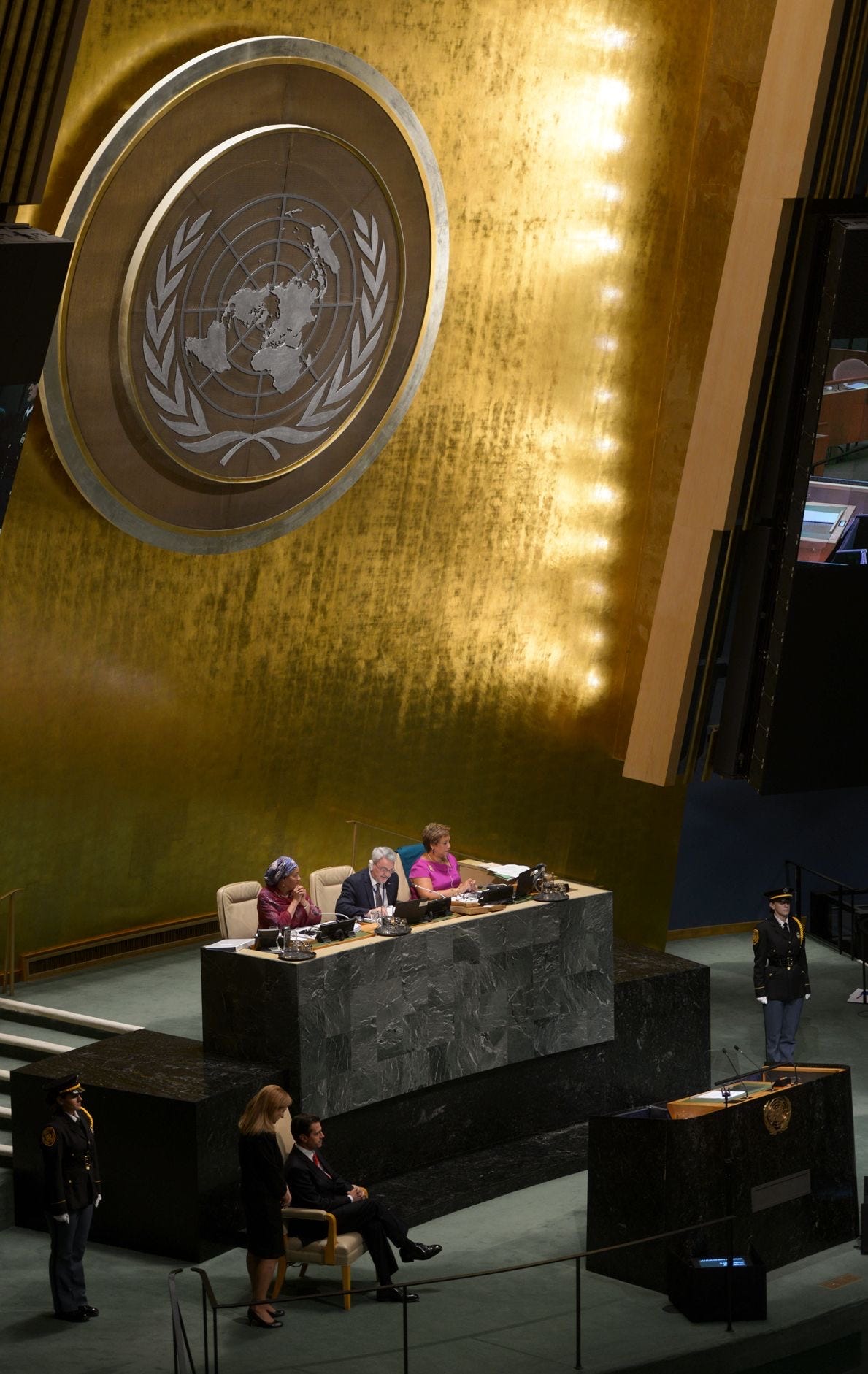We are making history, yet we have not entered history. We consume videos that place us face-to-face with the past. We watch television that immerses us in the agonies of the present. But history itself—we shall not enter it until we command the technologies of the future. This is the threshold of fifth-generation war.
I. The Empire of Simulation
In the twilight of modernity, liberal democracy once preached as the telos of civilization has become a hollow cathedral. It echoes with sermons of freedom, but the congregation is absent. The architects of the West, once thinkers and builders, have faded into managers of illusion. In their place: a class of fragile elites, addicted to surveillance, ceremony, and simulation.
This is not merely decline. It is metamorphosis. A new empire emerges not of soldiers and tanks, but of influencers, symbols, deepfakes, and NGOs. Meta-imperialism does not conquer land, it colonizes the mind, the algorithm, the archive. It operates not through occupation but through infiltration: the Sixth Column a ghost army of cultural operatives embedded in academia, media, civil society, and even humanitarianism.
Where empire once marched, it now streams.
II. The Collapse of Objectivity and the Rise of Booberlocracy
The world has slipped from ontology into optics. Western elites, once anchored by industrial might and institutional legitimacy, now drift in the fog of spectacle. Their decisions are no longer anchored in truth or necessity, but in algorithmic impressions, trending sentiment, and the fevers of focus groups.
This is booberlocracy: a rule of content creators masquerading as diplomats, of TikTok strategists replacing field generals, of Davosian elites who speak of diversity while subcontracting drone warfare. In this regime, knowledge is no longer built, it is curated. Reality is not lived, it is filtered. History is not studied, it is memed.
And amid this drift, imperialism has not vanished. It has mutated.
III. Meta-Imperialism: Control Without Borders
Meta-imperialism is imperialism without the boots, the borders, the burden. It achieves with code and credit what guns and governors once did. The tools of this empire are not armies but narratives, curricula, search engines, and NGOs. The new viceroys are AI language models, editorial boards, UN rapporteurs, and development banks.
Take Syria: not merely a battlefield of rubble and resistance, but the theater where old imperialism (military occupation) gave way to meta-imperial encirclement, sanctions, narratives, media delegitimization, and humanitarian siege. With Bashar al-Assad gone, the Iranian strategic depth is bleeding. But more than a regime collapse, this is a rupture in civilizational continuity. Without Syria, Iran is geopolitically amputated, cut from the Mediterranean, exposed to Gulf encirclement, and spiritually shaken.
Yet, Iran still endures. In its defiance lies a question: can a nation survive without submitting to the software of global hegemony?
IV. From Unipolar Decay to Multipolar Destiny
But the empire of simulation has cracks. As the West drowns in its illusions, new tectonic actors rise not merely as states, but as civilizational responses.
Russia no longer fights for territory, it battles for metaphysics. Its war is not merely in Donetsk, but in the symbolic realm: against the universalist pretensions of the West, against post-gender neoliberalism, against history’s erasure. It calls not for balance, but for meaning.
China, once patient, now projects its own model: techno-authoritarian, Confucian in rhythm, capitalist in tempo, imperial in ambition. It builds roads, satellites, banks, not just for trade, but for memory, for influence, for aesthetic.
Africa is no longer a theater of pity, but a crucible of revolt. In Niger, Mali, Burkina Faso, young juntas expel French soldiers, shut down Western media, and declare the rebirth of African sovereignty. This is not nationalism, it is epistemological rebellion.
Europe, paradoxically, stands still neither sovereign nor colonial. Trapped between American algorithms and Russian anxieties, it has become a continent of management: green laws without steel, treaties without teeth, ethics without armies.
The United States, consumed by its inner contradictions, now wages wars it cannot name, in places it cannot govern, through proxies it cannot trust. Its most powerful weapon is not the Pentagon, but Netflix, Google, and Visa.
V. Toward the Geopolitics of Nations
This moment demands a new grammar. Not “global governance,” not “rules-based order,” not “North vs South.” But a return to the Geopolitics of Nations is a stage where cultures speak in their own tongues, where sovereignty is sacred, where history is not erased but invoked.
Iran, if it survives its siege and reforms its structure, could emerge as a cultural anchor in West Asia not as a theocracy, but as a civilizational model of resistance. If it fails, its fall will be remembered as the final breach in the Islamic East.
Russia, despite its internal fractures, now plays the philosopher-warrior forcing the world to choose: simulation or sovereignty. China, though ambiguous, holds the technological ace and with it, the temptation to build a new empire of data.
Africa’s young generation digitally native yet colonially aware could become the wildcard. If it forges Afrocentric multipolar alliances, it could escape the twin fangs of Western NGOs and Eastern resource grabbers.
And the West? It must choose whether to collapse with dignity or cling to its illusions until its final theater is cultural cannibalism.
VI. Conclusion: The Post-History Threshold
We stand not at the end of history, but at the threshold of post-history. A realm where meaning is distorted, nations are simulated, and war is streamed in 4K. The old empires ruled with armies and gold. The new meta-empires rule with images, interfaces, and NGOs.
But the resistance is not dead.
It lives in the sovereign algorithm, the unsilenced historian, the unplugged thinker, the soldier-poet, the rebellious continent.
In the age of meta-imperialism, multipolarity is not just geopolitics. It is therapy. It is resistance. It is the last architecture of meaning in a world obsessed with surface.
And so, the future belongs not to those who manage narratives, but to those who build civilizations.


